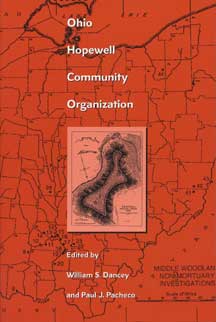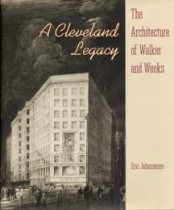Ohio Hopewell Community Organization
Architecture & Urban RenewalWilliam S. Dancey and Paul J. Pacheco
The great earthen mounds of southern Ohio have attracted archaelogical attention since the first half of the nineteenth century. Until now, little has been known of the social organization of the Native Americans who constructed these spectacular ceremonial monuments.
In the early 1960s, Olaf Prufer argued that the Ohio Hopewell societies who built the mounds that characterize the Middle Woodland Period (200 B.C. to A.D. 400) lived in small, scattered hamlets. Prufer’s thesis was evaluated at the symposium, “Testing the Prufer Model of Ohio Hopewell Settlement Pattern” and at the annual meeting of the Society for American Archaeology in Pittsburgh, April 10, 1992. Several of those essays and others, including two by Professor Prufer, are included in Ohio Hopewell Community Organization.
Within the last decade, more than 100 instances of Middle Woodland domestic sites have been documented. The authors examine plant and animal remains, ceramic and stone fragments, and traces of structures and facilities recovered through survey and excavation. The essays illustrate many of the controversies revolving around scientific study of the Hopewellian lifeway. In an Afterword, James B. Griffin shows that the problem of Hopewellian settlement pattern has deep intellectual roots, and its solution will be significant not only for the Ohio Valley but for world prehistory as well. While the volume holds obvious interest for professional archaeologists, it will also appeal to amateur archaeologists and visitors to prehistoric sites and museums.



